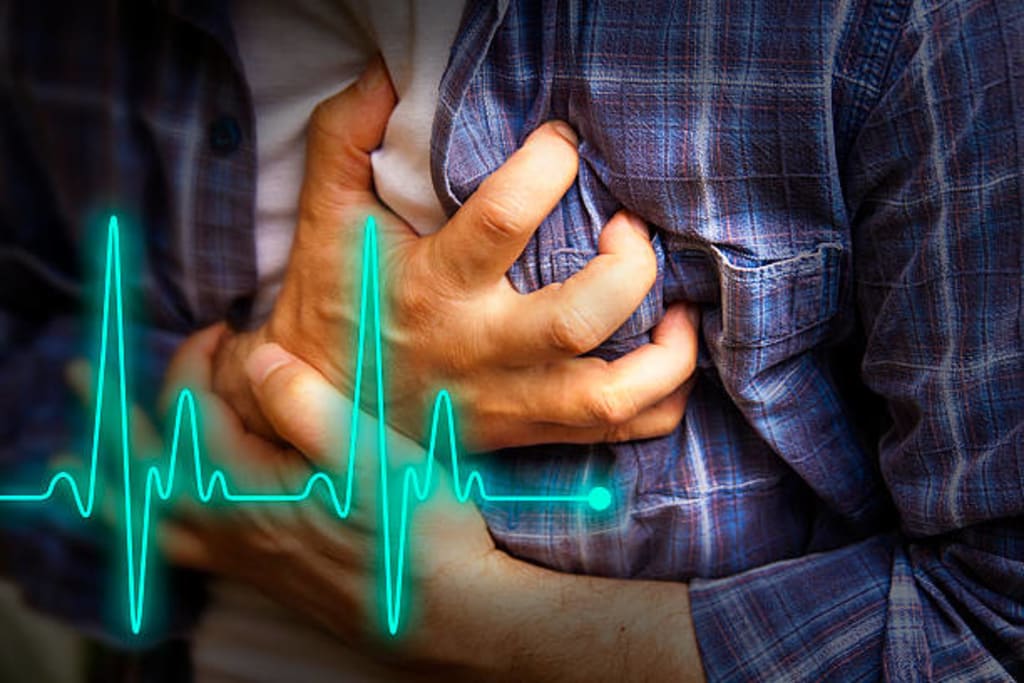
Heart attack and heart failure are two distinct and serious medical conditions that can affect the cardiovascular system. A heart attack is a sudden, life-threatening event in which a part of the heart muscle fails to receive enough oxygen-rich blood and becomes damaged or dies. The majority of heart attacks are caused by blocked arteries that lead to the heart muscle, usually due to the build up of a waxy substance called plaque. Symptoms of a heart attack can include chest pain, shortness of breath, nausea, and lightheadedness.
Heart failure, on the other hand, is a chronic, progressive condition in which the heart muscle is unable to pump enough blood to meet the body’s needs. It is usually caused by underlying conditions such as high blood pressure, coronary artery disease, or cardiomyopathy. Symptoms of heart failure can include fatigue, shortness of breath, swollen ankles and feet, and difficulty breathing when lying down.
Treatment for both conditions typically includes lifestyle changes, medications, and sometimes surgery. While a heart attack can be fatal, prompt treatment and lifestyle changes can help reduce the risk of further heart damage and reduce the risk of future heart attack. Heart failure, on the other hand, cannot be cured but can be managed with lifestyle changes, medications, and device therapies.
The best healthy lifestyle to avoid heart attack is to maintain a balanced diet, exercise regularly, reduce stress, get enough sleep, and avoid smoking and excessive alcohol consumption. Additionally, it is important to monitor your cholesterol and blood pressure levels, as well as any underlying medical conditions you may have. Finally, it is important to stay in close contact with your healthcare provider to make sure you are taking the necessary steps to live a heart-healthy lifestyle.
The best way to maintain a healthy lifestyle and avoid heart failure is to make sure you are eating a balanced diet that is low in saturated and trans fats, as well as cholesterol. Eating plenty of fruits and vegetables, lean proteins, whole grains, and healthy fats is beneficial for overall health and heart health. Additionally, it is important to exercise regularly and maintain a healthy body weight. Incorporating regular physical activity into your daily routine is essential for heart health, as well as reducing other health risks. Lastly, it is important to avoid using tobacco products, as well as limiting your alcohol intake, as both of these can increase your risk of heart failure.
The best treatment for a heart attack is prompt medical care. This includes calling 911 or getting to an emergency room as quickly as possible. Emergency medical personnel can begin life-saving treatments such as administering oxygen, performing CPR, and providing medication to help restore blood flow to the heart. In some cases, a procedure such as angioplasty or a stent may be necessary. Following a heart attack, lifestyle modifications such as quitting smoking, eating a healthier diet, and exercising regularly can help reduce the risk of future heart attacks.
The best treatment for heart failure depends on the severity of the condition, but typically includes medications such as ACE inhibitors, beta blockers, and diuretics; lifestyle changes such as exercising, eating a healthy diet, and quitting smoking; and, in more severe cases, surgery or other medical procedures.
1. Exercise regularly: Exercise is essential for keeping your heart healthy and can extend life expectancy. Aim for at least 30 minutes of moderate-intensity exercise at least 5 days a week.
2. Eat a healthy diet: Eating a balanced diet that is low in saturated fat and rich in fruits, vegetables and whole grains will help protect your heart and provide you with the essential nutrients needed for longevity.
3. Quit smoking: Smoking is one of the leading causes of heart disease, so quitting smoking is the single most important step you can take to prevent a heart attack.
4. Get plenty of sleep: Lack of sleep can lead to stress and high blood pressure, both of which can increase your risk of heart attack. Aim for 7-9 hours of quality sleep per night.
5. Reduce stress: Stress can increase blood pressure and cholesterol levels, both of which can put you at risk for a heart attack. Set aside time each day to relax and practice stress-reducing activities such as yoga or meditation.
6. Monitor your blood pressure: High blood pressure is one of the major risk factors for heart attack and stroke. Regularly checking your blood pressure and keeping it within the normal range can help reduce your risk of a heart attack.
7. Stay social: Social isolation is linked to an increased risk of heart disease, so staying connected with family and friends is essential for a long, healthy life.
About the Creator
sam
guiding purchasers on branding, patron retention and lead technology with #content, enterprise improvement and #social media, Public speaker and Author





Comments
sam is not accepting comments at the moment
Want to show your support? Send them a one-off tip.